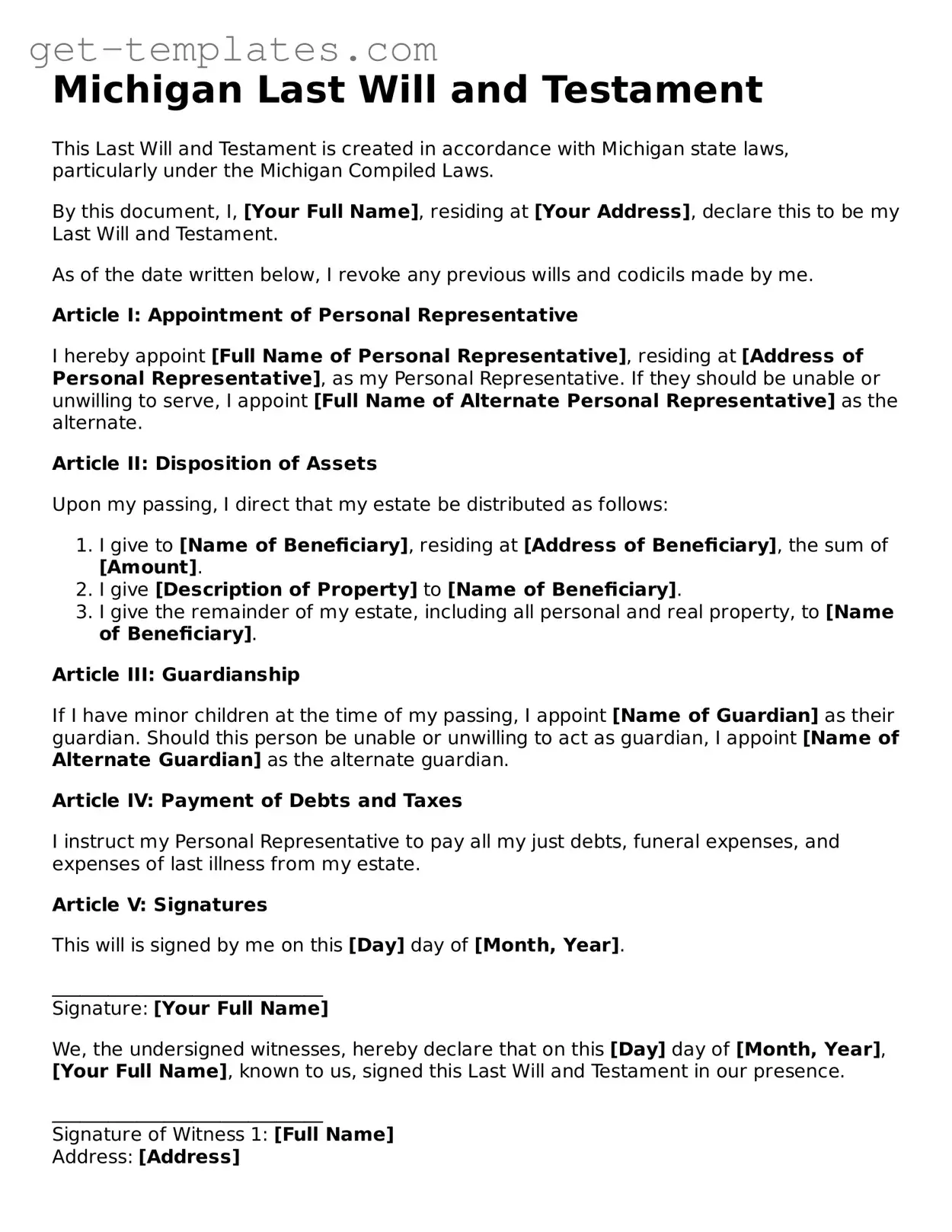Attorney-Approved Last Will and Testament Document for Michigan
A Michigan Last Will and Testament form is a legal document that outlines an individual's wishes regarding the distribution of their assets after death. This form serves as a crucial tool for ensuring that personal belongings, finances, and other matters are handled according to one's preferences. By creating a will, individuals can provide clarity and peace of mind for their loved ones during a difficult time.
Get Document Online

Attorney-Approved Last Will and Testament Document for Michigan
Get Document Online
You’re halfway through — finish the form
Finish Last Will and Testament online — edit, save, download made easy.
Get Document Online
or
⇓ PDF Form
